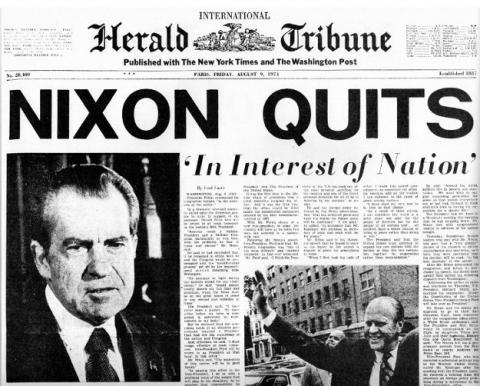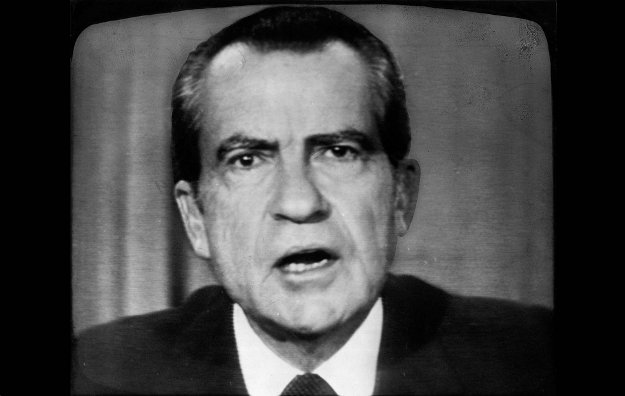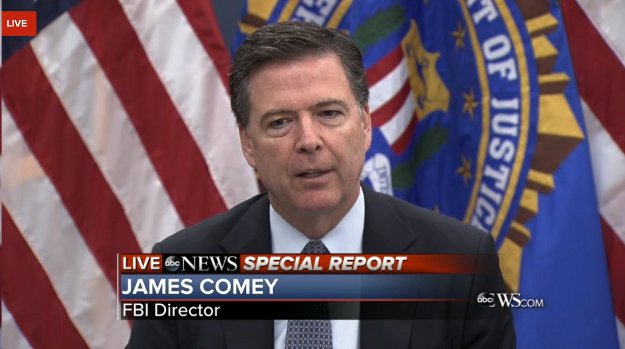The Ongoing Power Struggle Between the White House and the FBI

From PunditWire.com:
Opinion:
Only the foolish or fearless challenge the Federal Bureau of Investigation, a hard lesson learned by a diverse roster that ranges from Al Capone to Hillary Clinton. If there is a deep state in America, the FBI is near its core. Whether the White House is oblivious to this history or trying to notch its belt by challenging the bureau is worth pondering.
This is an agency that defied recent White House attempts to get with the program of minimizing the import of contacts between the Trump campaign and the Russians as well as possibly sabotaging last year’s Clinton campaign.
But, the most telling and potentially troubling precedent involves its role in bringing about the premature end to the Nixon administration, playing its typical inside-outside role. In the Watergate case that ultimately led to Nixon’s downfall, the FBI not only investigated crimes committed by his administration, but simultaneously quietly briefed the press so as to guarantee the public’s right to know while making it impossible for the implicated administration to close down their investigation.
A key role was played by Mark Felt, second only to FBI Director for Life J. Edgar Hoover, who recast himself as an anonymous source code named Deep Throat by Washington Post reporter Bob Woodward. He provided invaluable information that kept the case in the public eye. In retrospect, surprisingly little attention was paid then to his motives. The source was then characterized as a public servant offended by Nixon Administration misdeeds — and his affiliations were unknown.
Rumors of Deep Throat’s identity dribbled out over the years until Felt was definitely fingered.

The idea of a high-ranking career bureaucrat at such a conservative agency becoming a whistleblower was an attractive one, assuming him to be a citizen offended by a government going astray. And indeed that may have been part of the agenda.
The possibility that he was acting in a quasi-official capacity as part of a plot with unclear goals (surely including safeguarding the agency’s power relative to the White House) has received less publicity, but I find it more compelling.
This more nuanced version of the story was subsequently suggested by the agent running the FBI’s Albany office to a former Washington Post Watergate editor who said Felt had simply been doing his job and that his “leaks” were part of an FBI campaign to get the story out. When this allegation surfaced in 2005, it gained little traction and was quickly forgotten.
It was virtually ignored, perhaps because it challenged a myth — two intrepid young reporters backed by a brave newspaper successfully precipitate a presidential resignation — that was too compelling to abandon.
We do know that the FBI was an extremely bureaucratic agency, feared by Presidents Johnson and Nixon who were compelled to retain Hoover. We know that the FBI has played the press throughout its entire history to pursue its agenda (leaking damaging information on the Rev. Martin Luther King is among the more notorious cases in point).

The idea that Felt simply changed his procedural and cultural spots because he was so offended by the misdeeds of the Nixon Administration requires an enormous amount of blind faith about human nature.
Clearly FBI directors are much more overtly political than they once were. Finding FBI loyalty during the campaign inadequate because it now refuses to take direct orders from the White House (which it never has) may result in one of the more interesting and unreported power struggles of our day.
Author Bio:
For 16 years, Jim Jaffe worked for House Democrats who served on the Ways and Means Committee, apprenticing with Representatives Green, Gibbons and Gephardt before working for Chairman Dan Rostenkowski.
From PunditWire.com





























































































































































































































































































































